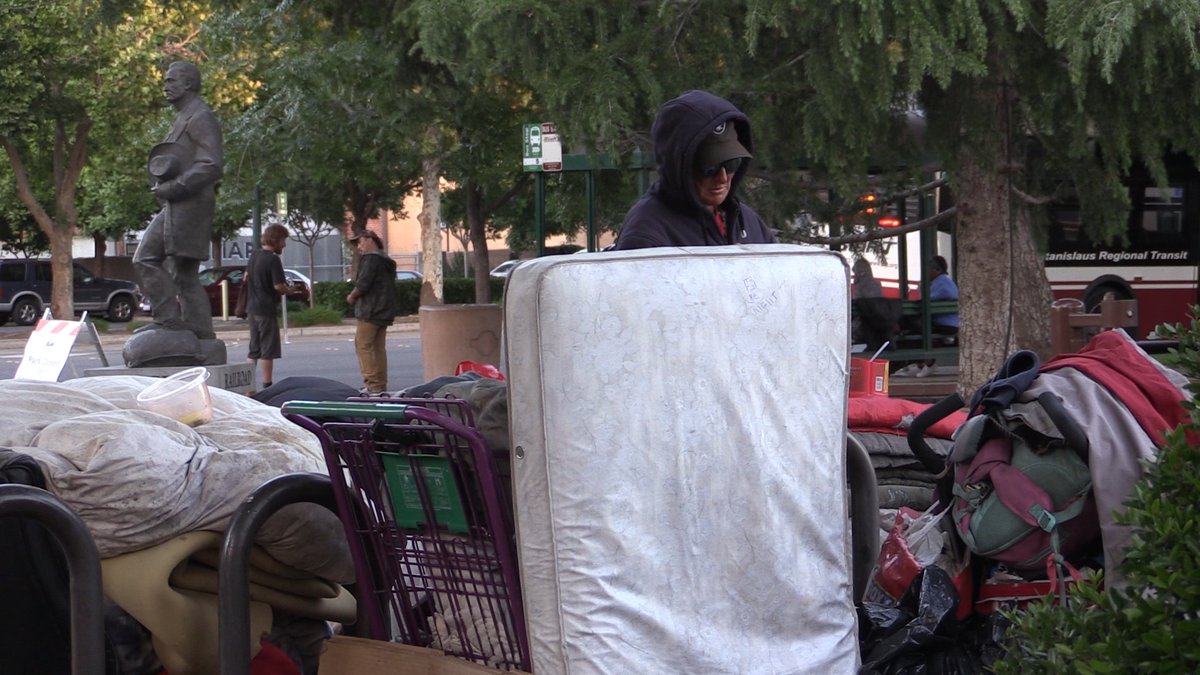Since its inception in 2014, Legacy Health Endowment has sponsored programs to create a new family nurse practitioner degree track at Stanislaus State, help senior citizens avoid re-hospitalization, double the mental health services available to students at Turlock schools and provide free sexually-transmitted disease testing and treatment, among others. The nonprofit healthcare foundation is now helping Turlock to get a better look at its homeless population, available resources and potential opportunities to improve services to the city’s most vulnerable through the recently released report, “Building a Better Turlock: How the Homeless Problem will Inevitably Challenge Healthcare for the Middle Class in our Community.”
While the report’s author, Legacy Health Endowment President and CEO Jeffrey Lewis, says that in his opinion “Turlock does not have a homeless ‘crisis’” but rather a homeless problem, he does offer a number of recommendations to better address homelessness in Turlock.
Turlock’s five major homeless service providers were featured in the report — Haven Women’s Center, Salvation Army Turlock Corps, Turlock Gospel Mission, United Samaritans Foundation and We Care Program. The service providers were examined to determine their capacity, funding and mission.
The report identifies four needs not currently being addressed: annual weather planning, coordinated entry and integrated services, gaps in sheltering and long-term health and wellness providers.
A lack of coordination of services is a big focus of the report.
“Turlock should look at creating a centralized leadership team for the development of a unified Turlock system of care. This Homeless Outreach, Planning, and Evaluation (HOPE) Team should be responsible for uniting grant programs across multiple providers; creating service interventions in partnership with county and local providers; looking at measurable outcomes; creating centralized fundraising opportunities; and using a diversified taskforce approach to coordinate service providers, mental health services, and healthcare needs,” states the report.
Legacy Health lists 11 recommendations, many aimed at having different organizations provide specific services to the entire homeless population so that services aren’t replicated. Those recommendations include:
- Converting the Turlock Gospel Mission Warming Center into a facility that addresses the physical and mental health needs of homeless people in the Westside community, run by local nonprofit healthcare providers. A combination urgent care / primary care clinic would provide a needed boost to the community.
- Centralizing cooking for the homeless at the Turlock Gospel Mission’s fully operational industrial kitchen and having that kitchen open seven days a week. Mission staff has capacity and training to deliver meals that can be tailored to client needs and would therefore be the logical choice for a centralized kitchen program. Centralizing this service would not preclude other providers from feeding the homeless, but rather maximize the value of every dollar given to these programs.
- Having family units kept together at the Turlock Gospel Mission shelter.
- Designating the Turlock Salvation Army facility as the community’s sole warming and cooling center. As the sole warming and cooling center, it would receive all public and private funds to fulfill these needs. Food could be provided through the Gospel Mission centralized kitchen. The City of Turlock should establish a committee to provide a Community Overflow Weather Shelter System, which serves as an annual plan for when and how warming and cooling services operate.
- Board Member boot camp for nonprofits.
- United Samaritans Foundation serve as the hub for homeless and transiting homeless individuals to receive needed medication. USF could work with Boies Pharmacy to help families and individuals in need. A fund should be established to help cover the cost of these medications.
- Establishing a healthcare fund at Haven to ensure that women and children have access to low- or no-cost healthcare and mental health services. One solution could be for homeless organizations to collaborate on a mobile healthcare option through partnerships with local providers such as Golden Valley Health Centers, Livingston Community Health, Castle Family Health Centers, and others.
- More physical and mental health services for those under age 26 and children living in homeless shelters, transitional housing and foster care.
- Create a true database to fully understand who and how many of the homeless population receive benefits — such as Veterans Benefits, SSI, Social Security, etc. — who is eligible for benefits and who is refusing benefits. The generosity of communities like Turlock is far too often taken for granted.
Lewis said the report was sent to the Mayor, Turlock City Council members, City Manager and the five service providers featured.
Turlock Gospel Mission CEO Christian Curby said that the report makes some good points, even though he doesn’t agree with every point.
“It’s good to continue to keep the conversation at the forefront,” he said.
When it comes to the gospel mission’s newly built kitchen, Curby said that it is a great resource for the community and they are working eternally to maximize its use.
The public can view the report at www.legacyhealthendowment.org.





